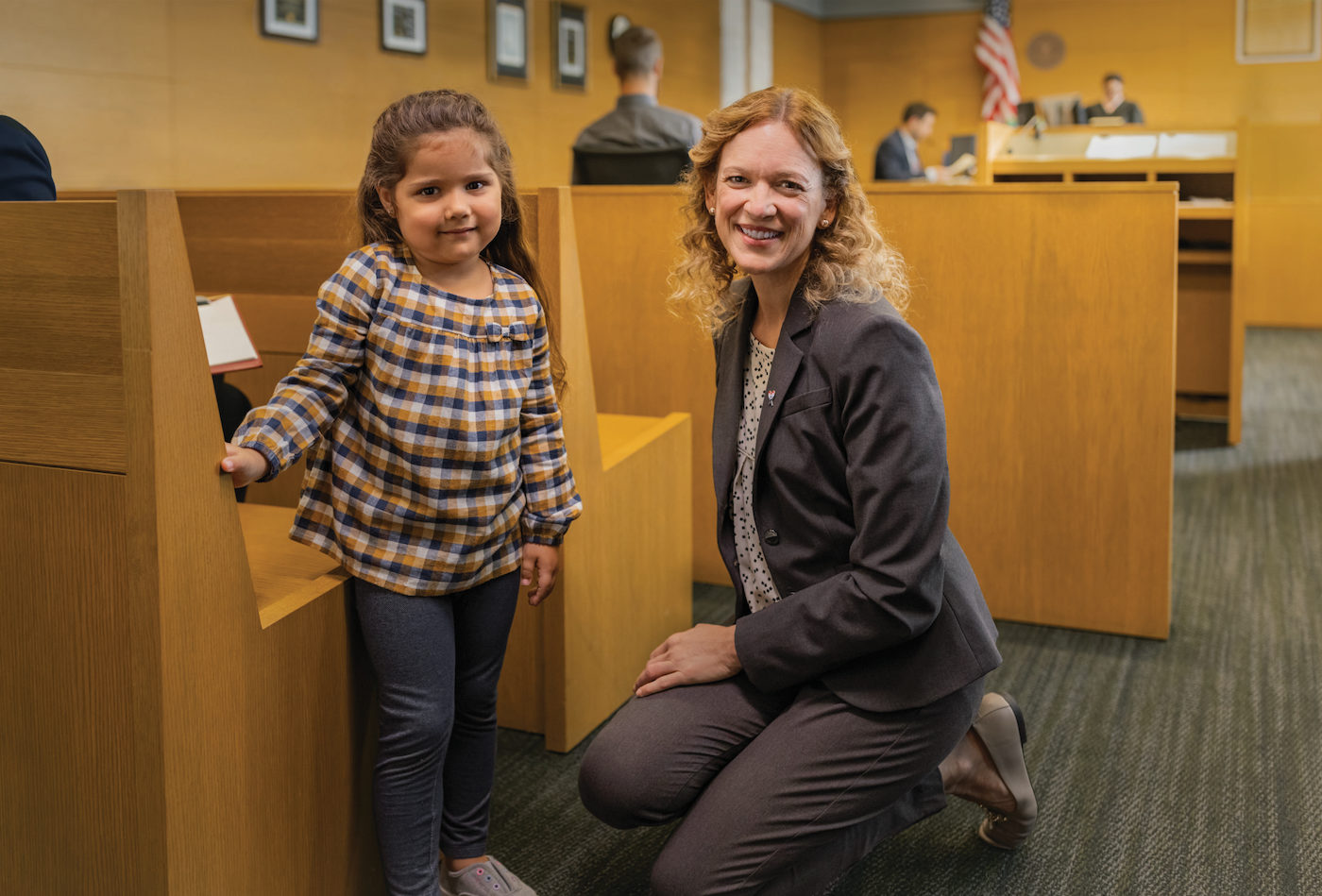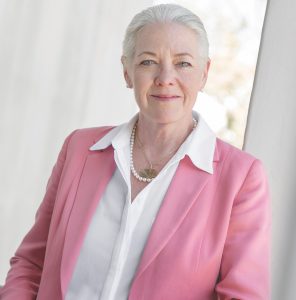CASA

When a child is removed from their home due to abuse or neglect, they are faced with something no youngster should ever have to go through: navigating a confusing world of court proceedings amid competing interests with their future hanging in the balance.
The children are provided a lawyer, but their attorney likely has hundreds of other cases to handle simultaneously. The child’s social worker is also burdened with a full caseload that prevents much focused attention, and even the judge – whose goal is to issue rulings that are best for the child – sees them too infrequently and only in the sterile courtroom setting.

That’s where Court Appointed Special Advocates (CASA) of Santa Barbara County gets involved. CASA’s mission is to assure a safe, permanent, and nurturing home for all abused and/or neglected children by providing a highly trained volunteer to advocate for them in the court system. The advocates, who are paired with just one child at a time, or perhaps a couple of siblings, have one simple goal: to make sure the child is getting everything they need to not only survive but thrive during the very vulnerable transition period after being removed from the home, whether they eventually end up back in their biological parents’ home or elsewhere.
I wrote almost exactly those same words in my column about CASA back in spring 2021, and all of it still applies today.
“The story doesn’t change, because we’re doing the same thing this year that we did last year, and the year before,” agreed Kim Colby Davis, CASA’s executive director. “And we’re going to be here next year doing the same thing: making sure these children get what they need by spending time with them and working with child welfare and with the attorney, so the court knows everything helpful to determine what’s in the best interest of the child.”
What also hasn’t changed, unfortunately, is some misconceptions about CASA and the kids that they serve, and what it takes to get involved.
“One of the first things that we have to clear up for people is that the kids haven’t done anything wrong,” Colby Davis said. “Good grief. A third of our children are between zero and three. They are just kids who didn’t ask to be placed in this situation. The vast majority are in the foster care system because they are neglected and basically abandoned. Their parents have become so addicted to the drug world that the children are literally in danger in their homes.”
Which leads to another misunderstanding, she said.
“The kids generally don’t realize that anything is wrong. It’s just home to them. Now they’ve been physically removed out of whatever is their comfort zone and suddenly placed into a strange scenario. That’s how every single child that we serve has experienced trauma that we can’t even begin to understand.”
But what CASA and its advocate volunteers can do is be with the children, listen, and uncover the needs and desires beyond basic food and shelter that might otherwise go unnoticed by the court system that decides their fate. The advocates can bring up the little things that can make a huge difference in a child’s life, such as getting involved in a soccer program or taking a dance class when they weren’t able to before. CASA advocates can both facilitate getting things approved and then the nonprofit can cover costs where funds aren’t available.
“It’s the things that a parent would do, like signing a permission slip, or having a kid get a fun haircut, those things where normally people would check in with the parents,” Colby Davis explained. “Our kids have to check in with their social worker and sometimes the judge on these things and that can be intimidating. Our volunteers help facilitate that and follow through by bringing it forward to the court so that the judge can see beyond that sterile case plan that he gets from social workers. It really brings the children to life and humanizes them in that courtroom environment. That little extra effort makes a huge difference.”
All that comes from the CASA volunteer being deeply invested in this one child’s wellbeing. Which brings up another misconception about the organization: that it takes a special background and an overwhelming commitment to get involved. Both myths, Colby Davis said.
“Our volunteers come from all walks of life,” she said. “We have retired attorneys and still-working plumbers, and grandmothers and young engineers. Anybody can do it. That’s proven by the fact that about two thirds of our volunteer force work full time.”
After a 35-hour training period, volunteers average only 10-12 hours a month for the year’s commitment. And the vast majority re-enlist – the average CASA volunteer spends about 52 months working with the nonprofit. But many more are needed.
Which brings us to the last thing that hasn’t changed for CASA in recent years: despite having advocates for nearly 400 children last year, the organization still isn’t able to actually serve all of the children in need.
“We had 60 on our waitlist,” Colby Davis said. “I feel horrible knowing that we should be helping them and that we’re not.”
The good news is that it takes only $2,500 to sponsor one year of advocacy for a child through CASA. Thinking big, about $150,000 would let CASA grow its staff or trainers and support services to completely eradicate the waitlist and get more kids a devoted advocate as they navigate the court system. But every dollar helps.
Colby Davis mentioned that longtime CASA board president Tony Papa used to regularly say, “You get a lot of bang for your buck at CASA.”
“If you leave a kid in chaos, then you can be guaranteed that you’re manufacturing another generation of chaos. But if you interrupt that and put a committed volunteer in the way and show them a different, more stable path, then you can change that life and change the trajectory.”
To learn more about CASA, inquire about volunteering, or support the local nonprofit, visit www.sbcasa.org or call (805) 739-9102.
Court Appointed Special Advocates (CASA) of Santa Barbara County
Donate now!
www.sbcasa.org
(805) 357-2595
Associate Director of Donor Engagement: Kira Cosio
Mission
The mission of Court Appointed Special Advocates (CASA) of Santa Barbara County is to assure a safe, permanent, nurturing home for all abused and/or neglected children by providing a highly trained volunteer to advocate for them in the court system.
Begin to Build a Relationship
We know you care about where your money goes and how it is used. Connect with this organization’s leadership in order to begin to build this important relationship. Your email will be sent directly to this organization’s director of development and/or Executive Director.
I am a direct product of the generosity of CASA donors. Because of you, I had moments of stability, normalcy and pure childlike happiness. On behalf of the children who benefit from having a CASA volunteer in their lives, thank you. I know that it is a choice to support CASA, with so many other worthy organizations, you chose CASA.
Do It. Give This Storied Organization What It Needs
To recruit, train, and provide ongoing support to every CASA volunteer requires $2,600. With more than 100 County children waiting, a $260,000 ask is completely within reason.
So step up as a volunteer, and also make a significant donation.
Before this new wave of entries into the turbulence of foster care, CASA of Santa Barbara County found a way – with your help – to serve every single child in the system: speeding adoptions, reunifications, and setting these resilient young people on a path to success.
A more targeted intervention does not exist. Be a part of a foundational pillar of this community’s future today.
Key Supporters
Patricia and Evan Aptaker
Heather and Rich Ames
Jim and Julie Burge
Marcy Carsey
Andrew and Terri Dowen
Rick DuBreuil
Frank and Alida Freda
Ted and Coleen Friedel
Martin and Kerrilee Gore
Niall and Julie Henley McNamara
Christine and Michael Holland
Deborah and Marty Lynch
Mona McConkey and
Dominick Barry
Tony and Sabrina Papa
Justine Roddick and Tina Schlieske
Veronica Sandoval
Elan Shpigel
Lindsay Soleimani
Prudence and Robert Sternin
Daniel Vordale
Virginia Benson Wigle


